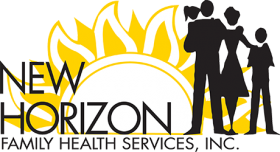 National Nutrition Month® is a nutrition education and information campaign created annually in March by the Academy of Nutrition and Dietetics. The campaign focuses attention on the importance of making informed food choices and developing sound eating and physical activity habits.
National Nutrition Month® is a nutrition education and information campaign created annually in March by the Academy of Nutrition and Dietetics. The campaign focuses attention on the importance of making informed food choices and developing sound eating and physical activity habits.
The theme for 2017 is "Put Your Best Fork Forward", which acts as a reminder that each bite counts. Making just small shifts in our food choices, can add up over time. The 2015-2020 Dietary Guidelines for Americans suggest starting with small changes in order to make healthier lasting changes you can enjoy. This year's theme for National Nutrition Month® inspires us to start with small changes in our eating habits – one forkful at a time. So whether you are planning meals to prepare at home or making selections when eating out, Put Your Best Fork Forward to help find your healthy eating style.
- Create an eating style that includes a variety of your favorite, healthful foods.
- Practice cooking more at home and experiment with healthier ingredients.
- How much we eat is as important as what we eat. Eat and drink the right amount for you, as MyPlate encourages us to do.
- Find activities that you enjoy and be physically active most days of the week.
- Manage your weight or lower your health risks by consulting a registered dietitian nutritionist. RDNs can provide sound, easy-to-follow personalized nutrition advice to meet your lifestyle, preferences and health-related needs.











 The theme for 2017 is “Prevent to Protect: Prevent Infections for Baby’s Protection”. We know that not all birth defects can be prevented. But, we also know that women can increase their chances of having a healthy baby by managing health conditions and adopting healthy behaviors before and during pregnancy. Some infections before and during pregnancy can hurt both you and your baby. They can cause birth defects and lifelong disabilities, such as hearing loss or learning problems. You can reduce your risk of getting an infection during pregnancy to help protect your baby by following the subsequent recommendations:
The theme for 2017 is “Prevent to Protect: Prevent Infections for Baby’s Protection”. We know that not all birth defects can be prevented. But, we also know that women can increase their chances of having a healthy baby by managing health conditions and adopting healthy behaviors before and during pregnancy. Some infections before and during pregnancy can hurt both you and your baby. They can cause birth defects and lifelong disabilities, such as hearing loss or learning problems. You can reduce your risk of getting an infection during pregnancy to help protect your baby by following the subsequent recommendations: